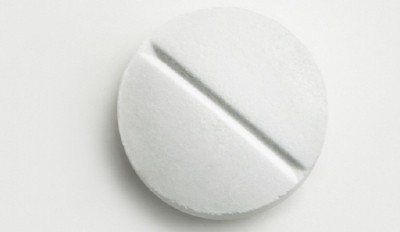SPI Pharma expands line of mannitol products

SPI Pharma has released Mannogem XL Opal, Mannogem XL Ruby, Mannogem Emerald, and Mannogem Onyx, designed for use in a variety of patient-friendly dosage forms, including orally disintegrating tablets and chewables.
According to the company, these new compendial mannitol grades make it possible to offer smaller tablet sizes and faster disintegration times than similar products. These enable manufactures to create more patient-friendly treatments, which can increase adherence to a regimen.
Flexible options
John McInerney, general manager of excipients and drug delivery systems at SPI Pharma, said increasing the options in mannitols available to manufacturers provides them with greater flexibility.
“We’re putting more tools in their toolboxes,” he said. “Instead of having just a hammer, we’re now also giving them a wrench, screwdriver and more.”
Mannogem XL Opal and Ruby are designed to empower greater efficiency in development with sophisticated dosage forms like multiple unit particle systems and controlled-release (CR) ODTs. These products have been engineered to provide higher hardness, faster disintegration per tablet hardness, higher drug-loading capability, and better friability.
Additionally, the company says these mannitols require relatively low amounts of binder and can be made at low compression forces.
Mannogem XL Opal features a compaction mechanism intended to reduce sensitivity to lubricant levels and extended blending times. It can function either as a filler or tablet binder, for the creation of high-quality tablets able to withstand film coating, printing and packaging. The XL Ruby product offers similar characteristics in a granular form.
Mannogem Emerald and Mannogem Onyx are 25 μm and 50 μm mannitol powders, respectively. These mannitol products are designed to empower manufacturers to formulate with the benefit of a more secure supply chain.
Managing risk, improving performance
Coralyn Gonzalez, head of global sales for excipients and drug delivery systems, told us that while pharmaceutical companies are averse to introducing risk into the manufacture of new and existing drugs, they still seek alternative sources and ways to improve their products.
“They’re concerned about risk mitigation, and they look for companies that can provide alternative products, but with much better performance,” she said. “That’s what we’re doing with this portfolio—providing customers with an option for risk mitigation, and to solve some formulation products to come up with innovative products that are patient-centric.”
Bill McCarthy, global marketing manager for SPI Pharma, told Outsourcing-Pharma that the company’s customers benefit from a broad repository of knowledge, as well as high-quality products.
“The offerings we bring consists of the product we make, but also the knowledge we bring in terms of its use. We observe what patient groups need—those groups are our customers’ customers,” he told us.
He added that combination of quality and industry knowledge enables clients to use SPI products to not only make new products, but possibly to improve the performance of existing items.
“That’s something that makes SPI different from the competition—the material is compendial, familiar, and already used in formulations," he said. "We’ve figured out a way to make it so that it’s performance is enhanced,” he said. It’s easy to take advantage of the values that we’ve built into it.”


















